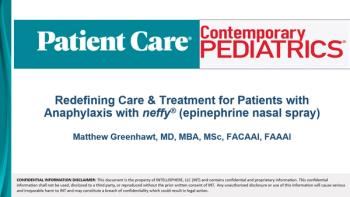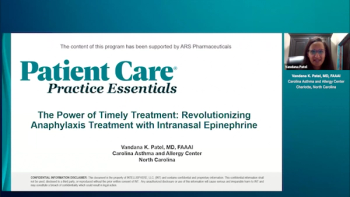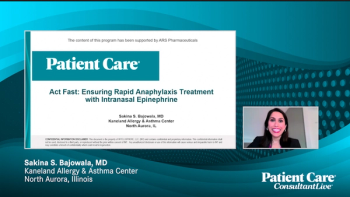
This Insights video series sponsored by ARS Pharmaceuticals featuring Dr. Matthew Greenhawt, MD, MBA, MSc, FACAAI, FAAAAI will discuss the following:
- Review the importance of identifying and managing patients at risk for Type I allergic reactions, including anaphylaxis, from a pediatric perspective.
- Describe essential strategies for educating new and returning patients and caregivers on effective preparedness, recognizing symptoms of an allergic reaction, including anaphylaxis, the importance of understanding severity, and the critical timing of rapid epinephrine administration.
- Explore strategies for engaging patients in shared decision-making for optimal preparedness, including discussion of common barriers to rapid, successful epinephrine use with needle-injectors (especially avoidance and hesitation as well as administrative risks and safety), and examine how intranasal delivery with neffy® (epinephrine nasal spray) is designed to mitigate these challenges.









